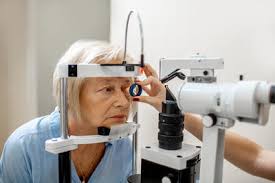What are the factors determining Medicare vision coverage?
Medicare vision coverage often proves overwhelming, especially if you are not aware of any direct benefits. We advise you to consult with leading advisors at Askhpm to know more about vision and hearing aids coverage.
With Medicare vision coverage becoming quite a prominent topic of conversation, there is still confusion prevailing in the beneficiaries' minds regarding their usage. Original Medicare Part A and Part B offer limited vision coverage as it may not cover most routine eye care facilities. This is where Medicare Advantage Plans may offer additional benefits that can provide routine vision care.
In most cases Original Medicare will not cover eye refraction or routine eye tests, which you will typically undergo to get eyeglasses or contact lenses. If you do not have any other insurance type, you may have to bear these out-of-pocket expenses as Medicare does not cover this.
However, Medicare vision coverage does take care of specific preventive and diagnostic vision screenings in a few cases, such as Glaucoma screenings, Diabetic retinopathy screening, and Macular degeneration treatments and tests.
All people covered under Medicare Part B will be eligible for eye prostheses coverage due to vision trauma or surgery or a congenital defect. It also covers polishing and resurfacing your artificial eye that will be taken care of by Medicare once every five years. You will have to pay 20% of the Medicare-approved charges for eye prostheses, and the Part B deductible will be applicable.
Similarly, Medicare for hearing aids is also not covered by Part A and Part B, but specific Medicare Part C plans may cover hearing aids.
To know more about Medicare vision coverage and hearing aid coverage, get in touch with www.askhpm.com today!




Comments
Post a Comment